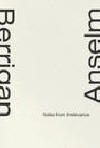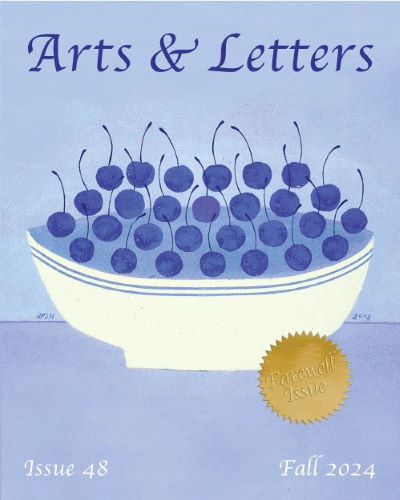Notes from Irrelevance
Anselm Berrigan’s new book Notes from Irrelevance opens with a simple declarative idea: “I came.” But what precedes that phrase gives a better sense of what a reader can expect from this long poem:
Anselm Berrigan’s new book Notes from Irrelevance opens with a simple declarative idea: “I came.” But what precedes that phrase gives a better sense of what a reader can expect from this long poem:
Armed with an early
termination fee, a
delusion with regard
to neither denying
nor being of the past,
a lazy fly to center,
a transcription of
a stain on the soul
of the off-looker…
armless, disregarding
the mediated affect
of trees and their
privileged iterations
of objective fallacy in
the face of impassive
pregame nihilisms
tuned to talk’s vanishing
outline, I came.
This single stanza, book-length poem is a compilation of such linguistically rich and syntactically varied sentences. Discursive like much of Berrigan’s work, the poem meanders through a day in the life (or perhaps a week or longer), capturing the essence of what life is like for the author, who self-identifies as “currently one / of the six billion-plus.” And though there are autobiographical moments specific to the author, the poem speaks to a wider experience too—to what it’s like to be alive and thinking in America today, or perhaps what it is like to live in New York today, or what it’s like for anyone who has the strange desire to “be seen in […] life in / the world alone.” As Berrigan states, “I write / with the fact of being in / civilization as context / to which it is hardly / necessary to refer.”
In addition to commenting on the human condition, the poem also offers a statement of poetics, and perhaps ultimately to be a poet is not so different than being human:
…So the
task is to find a new way
to speak, to tell of being,
tell being to fuck off and
come back with a steelier
measure of lack, a kinder
spirit for company,
distance, pain, fortitude
in the emphatic grist
rephrasing caught rides
half the time
There’s a self-deprecation at work here too. Berrigan runs through a checklist of qualities:
…Futility of pain
management as source
of humor in outlook?
Check. Controllable
vices for purposes
of a secondary level
of interior life, an echo
of conscience trailing
out? Check. A sense of
time as discontinuous
it its spread while simul-
taneously expanding
on a surface line that’s
only a reflection of
a sense of a line?
Check. Total distrust
of command but for the
contradictory moments
of necessity? Half-check.
And there’s a propulsion to the sentences that adds to the impression of having been written in a single setting, even though the author clearly moves through the poem—from scenes of watching a Yankees game at a bar, to home life with his daughter on his lap, to walking along East 4th Street. The poem ends with the poet signing off: “Love, Anselm.” And even though the last part of the poem is addressed specifically to the poet Dana Ward, the entire poem comes across as a letter written with love to all of humanity.





